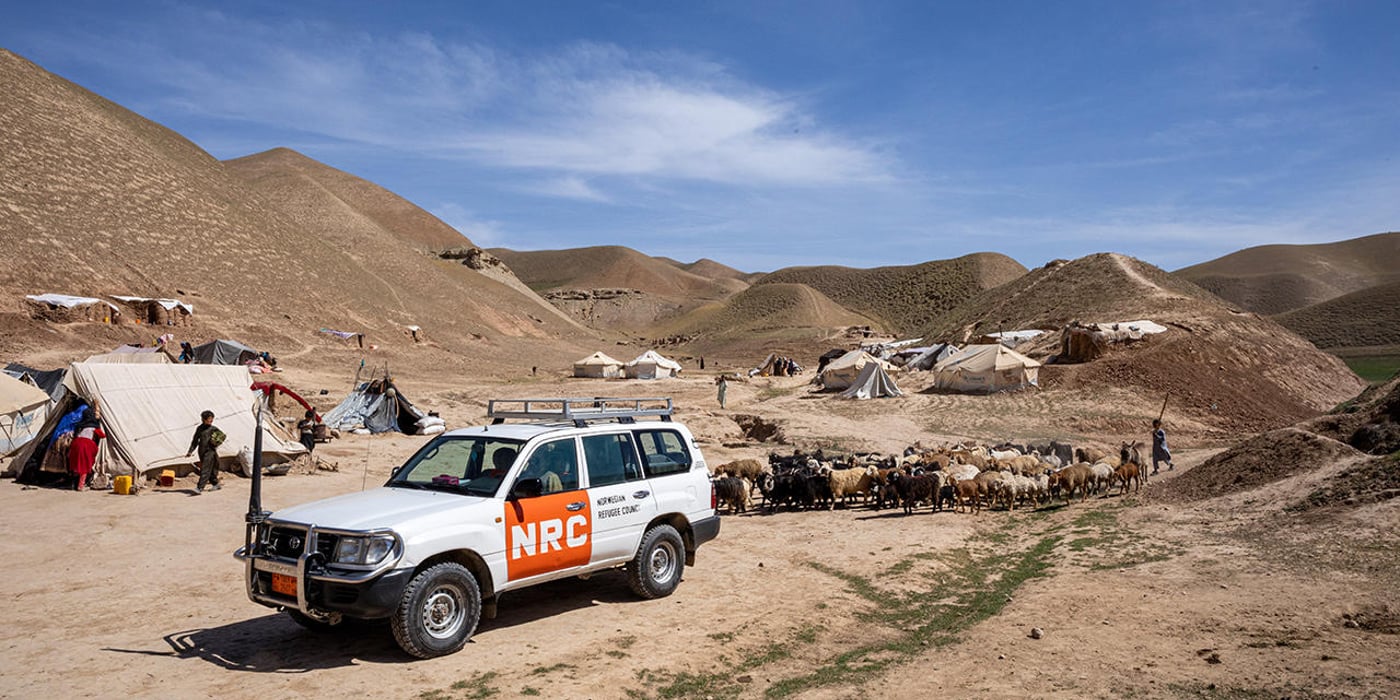
By United Nations Under-Secretary-General for Humanitarian Affairs and Emergency Relief Coordinator, Martin Griffiths, and the Secretary General of the Norwegian Refugee Council, Jan Egeland.
This opinion piece was originally published by The Telegraph.
In June, two missiles hit one of the largest hospitals in northern Syria, killing 19 civilians, including three children and four humanitarian workers. An additional 11 hospital staff were injured.
Rockets hit the emergency room and delivery ward, reducing them to rubble. Al-Shifa’a hospital is now inoperable, and thousands of Syrians have been cut off from life-saving medical assistance.
Later that same month, three aid workers, clearly identified as working for an international aid orgnisation, were killed in Ethiopia’s Tigray region.
Tragically, attacks like these have become commonplace. Every week, humanitarian workers across the world are killed, injured, sexually assaulted, kidnapped or detained as they work to help the world’s most vulnerable people.
Humanitarian needs today are at a record high. Some 235 million people need aid across 56 countries. This is due to the crippling combined effects of prolonged conflict, the climate crisis and COVID-19.
But reported attacks on aid workers have increased almost tenfold over the past 20 years according to Humanitarian Outcomes.
Last year, 475 aid workers were attacked and 108 of them killed in 41 countries – the vast majority of them national aid workers working on the front lines of conflicts.
Humanitarian groups are often forced to temporarily suspend activities or relocate staff, depriving communities of life-saving aid deliveries and protection.
Robust international laws of war exist to protect relief operations and aid workers, and facilitate aid reaching the people who need it to survive. But too often fighting parties – both states and non-state armed groups – brazenly flout them. And when they do, they face few consequences.
As humanitarian needs soar, we need urgent action to get aid workers and supplies out of the line of fire, and ensure relief gets to where it’s needed.
First, states and non-state armed groups participating in armed conflict must live up to their fundamental obligations under international humanitarian law.
Experience shows that incorporating the laws of war in training and the rules of engagement for armies and armed groups works. As does adopting strong military policy and practice to ensure civilians and humanitarian access are protected.
States have many means of influence to get conflict parties to respect international humanitarian and human rights laws, ranging from political dialogue to withholding arms transfers where there is a clear risk that the arms will be used to commit serious violations of those laws. They need to consistently apply them.
Second, allegations of serious violations of international humanitarian law must be systematically and independently investigated, and perpetrators held to account. War crimes that go unpunished embolden perpetrators to commit further violations.
Third, governments must recognize the need for humanitarian organizations to neutrally engage with all parties, including non-state armed groups, to safely help people in need. This means that humanitarian organizations must be able to speak to whoever controls territories where populations are in need, so families living in areas under their control can receive humanitarian assistance.
A 2016 study commissioned by the aid group Geneva Call found that non-state armed groups expressed greater acceptance of international humanitarian law when there had been active in long-term engagement with humanitarians. These armed groups were more likely to deny access and even attack aid workers when humanitarian organizations were perceived to be supporting a political agenda.
One of us – Martin Griffiths – will soon appoint a special adviser on the preservation of humanitarian space and access. This is an opportunity to speed up progress on these critical areas. It will also need governments to take bold, practical steps to ensure respect for international law and facilitate humanitarian access.
And fourth, counter-terrorism measures must not impede humanitarian action, and should include clear exemptions to preserve the ability of humanitarian organizations to help people in need, wherever they are.
Counter-terrorism measures have often hindered humanitarian work in areas where armed groups are present, and at times have even criminalized legitimate aid activities, depriving civilians of life-saving aid precisely when international law entitles them to it.
National legislation in several countries, including recently in Chad and Switzerland, has excluded humanitarian activities from the application of counter-terrorism measures under criminal law. This is a step forward.
Today, World Humanitarian Day, is a moment to commemorate aid workers who have fallen. Taking meaningful and immediate action to protect each and every aid worker operating today is the best way we can honour their legacy.

